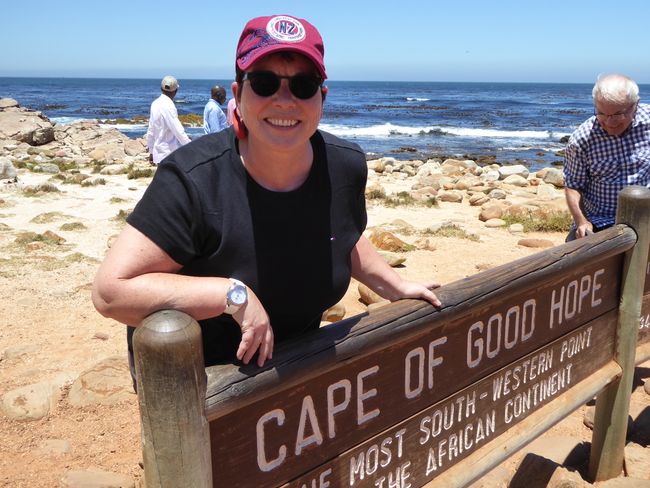
Südafrika - Kapstadt, Stellenbosch & Garden Route
vakantio.de/sudafrika_capetown_gardenroute
Again wild animals and drive to Mossel Bay
Atejade: 27.09.2019
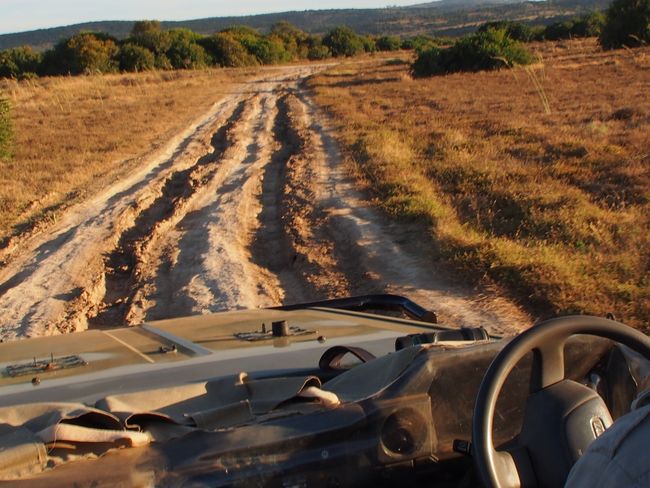
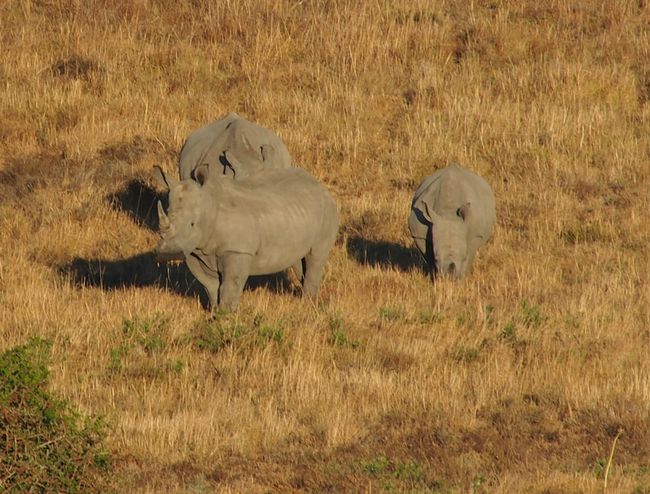
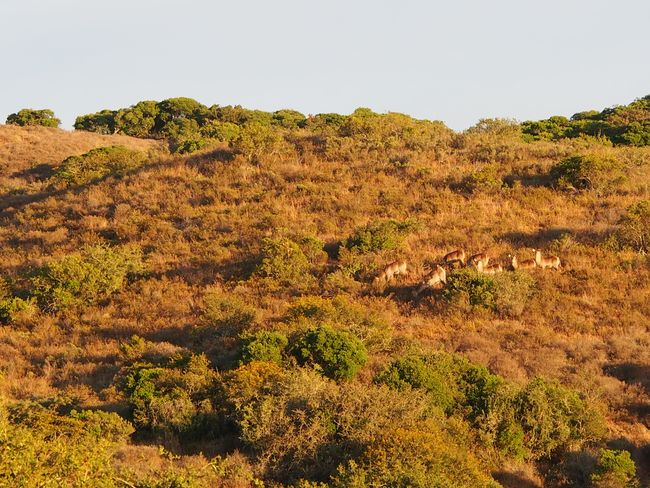
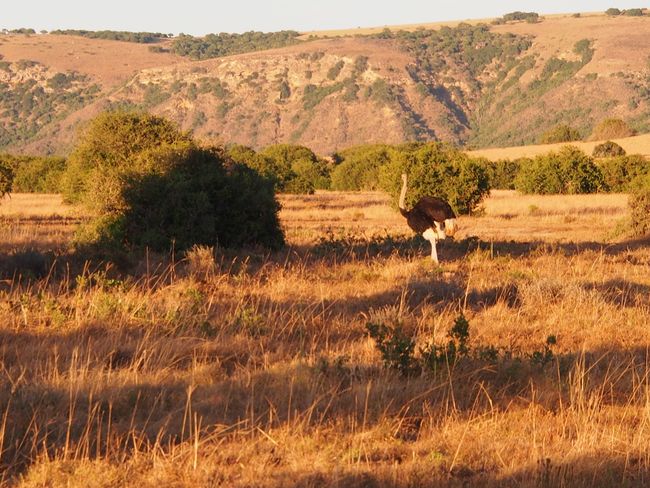
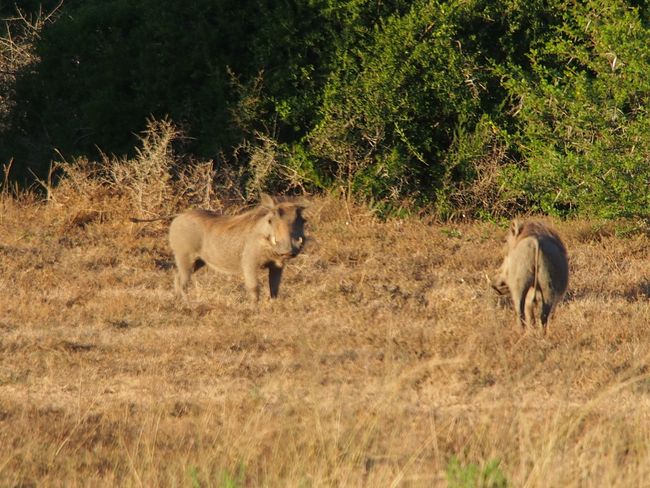
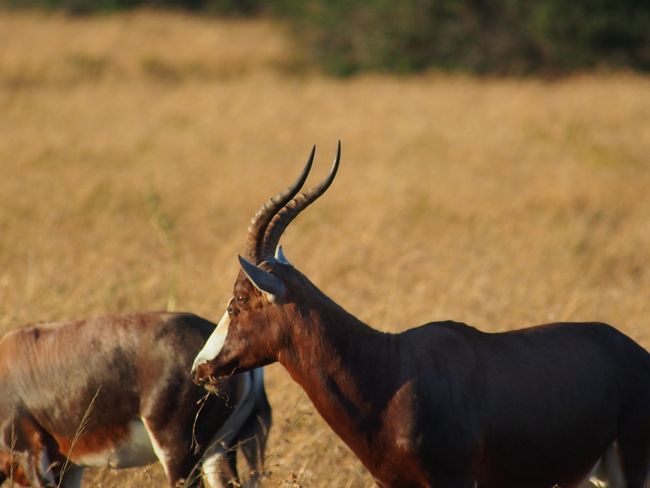
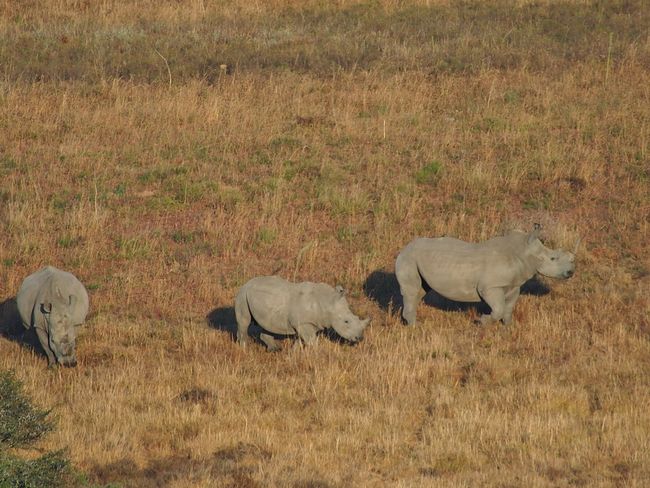
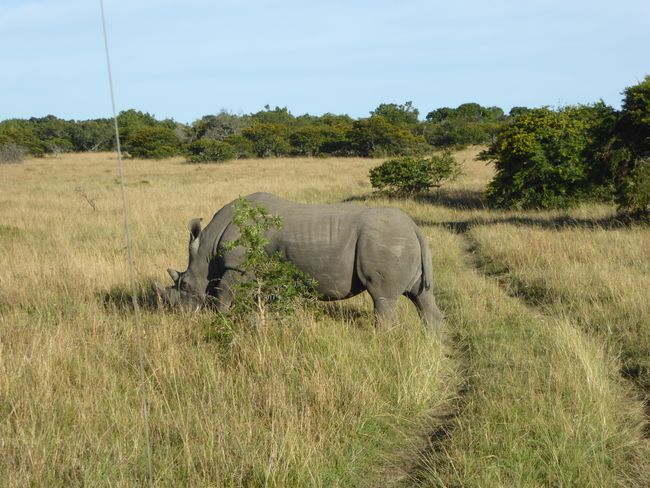
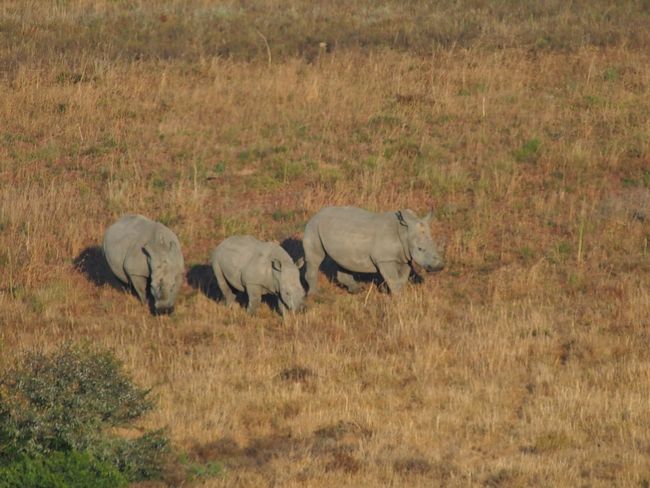
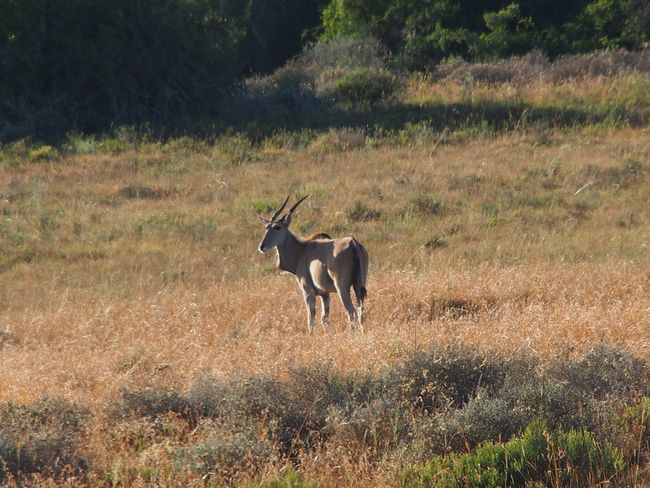
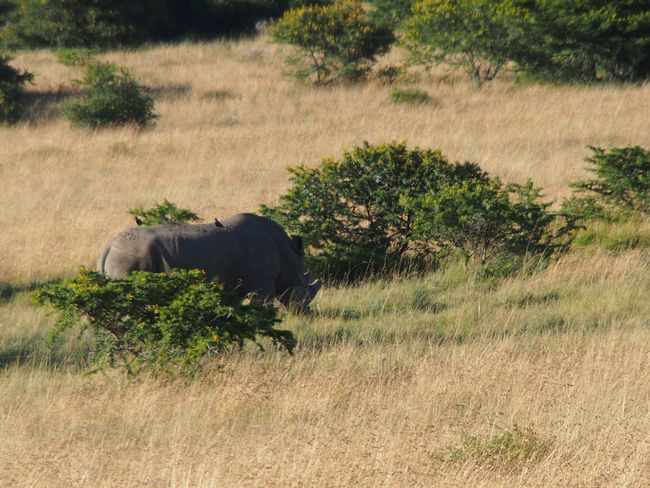
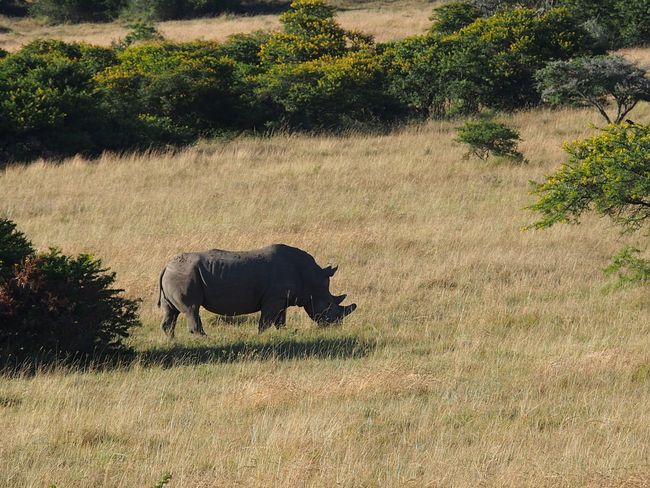
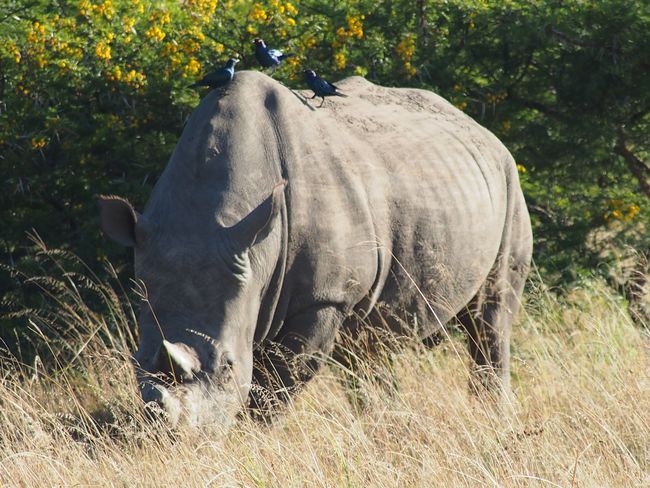
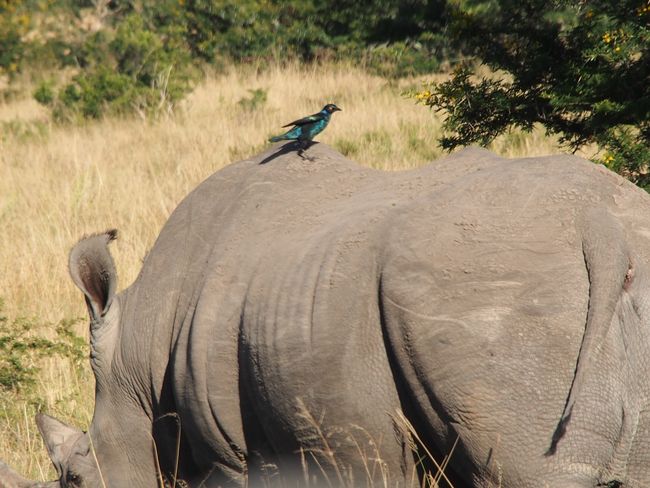
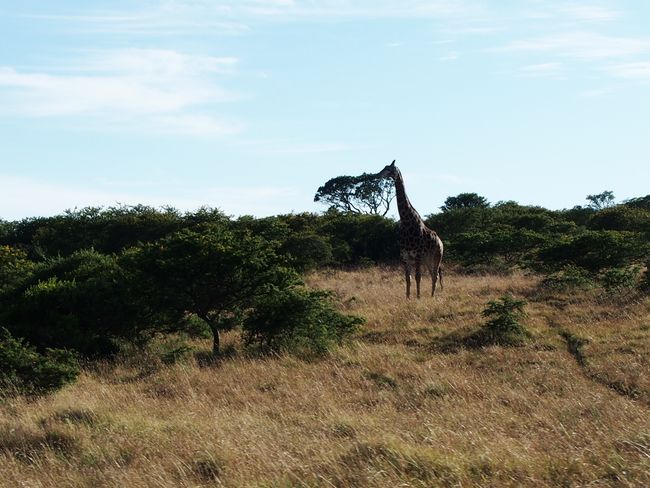
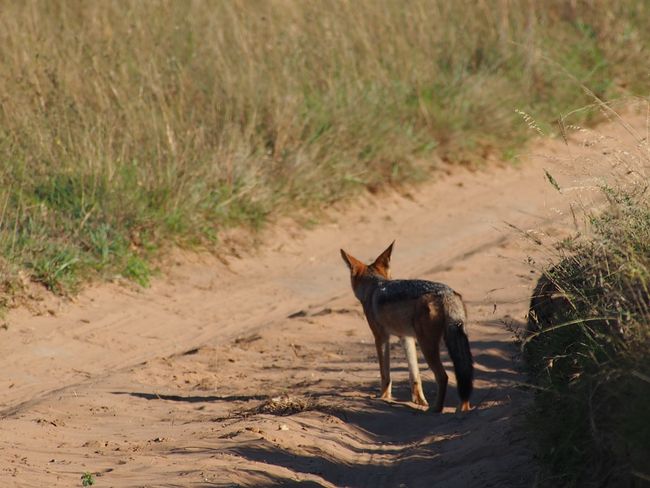
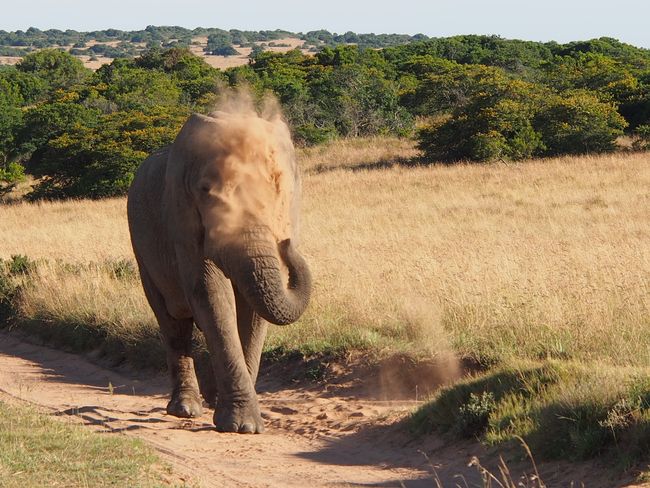
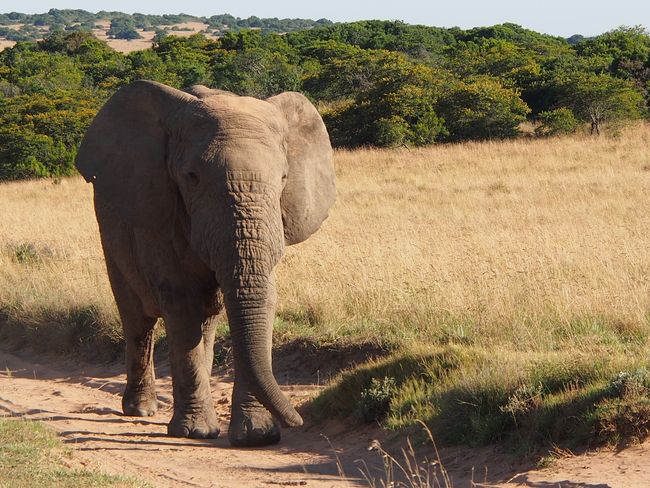
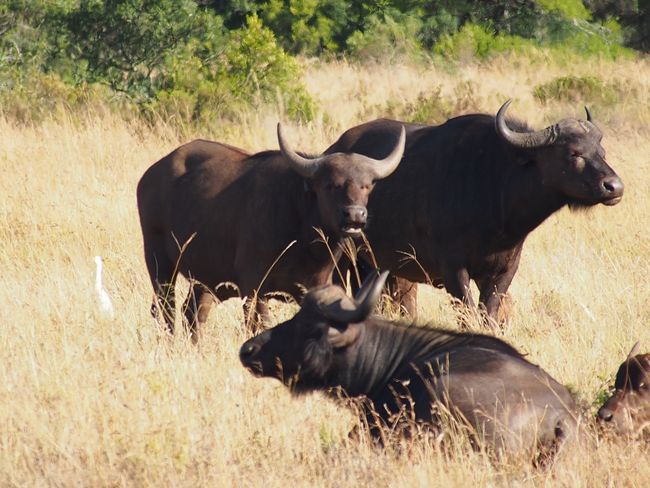
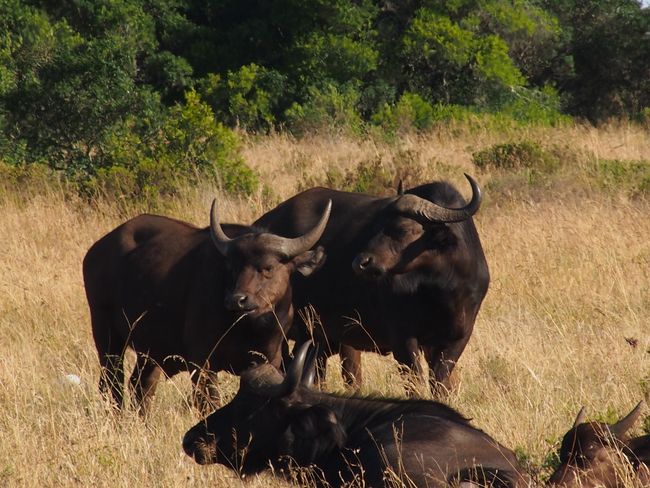
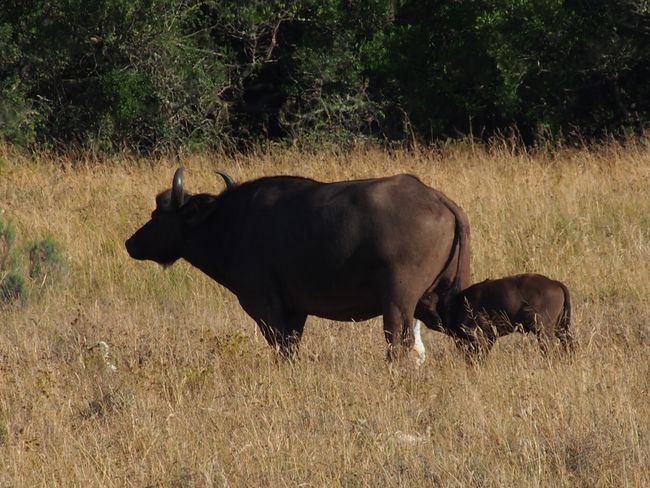
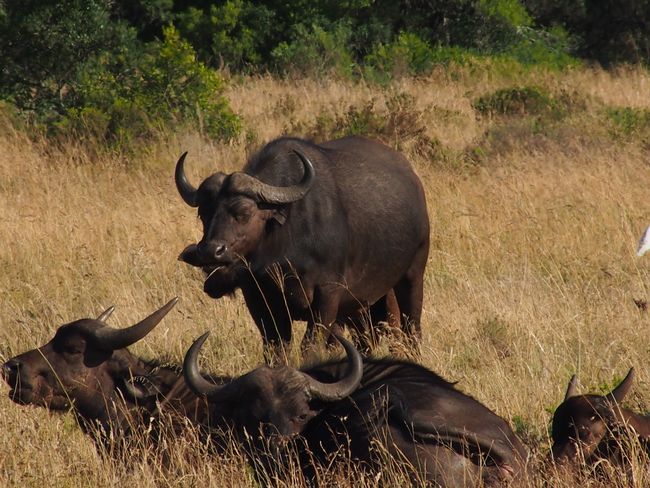
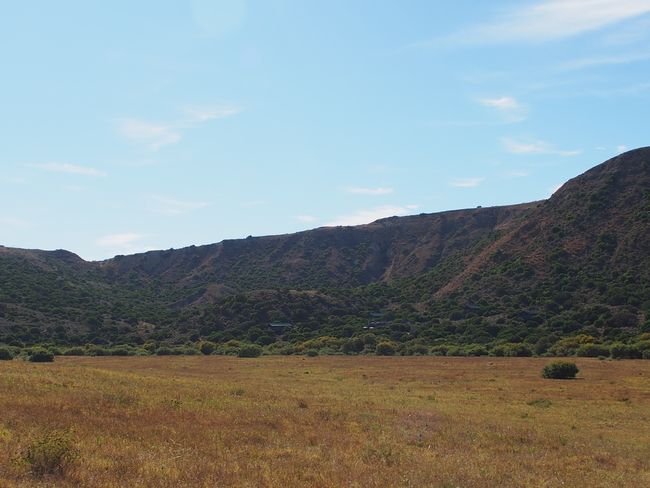
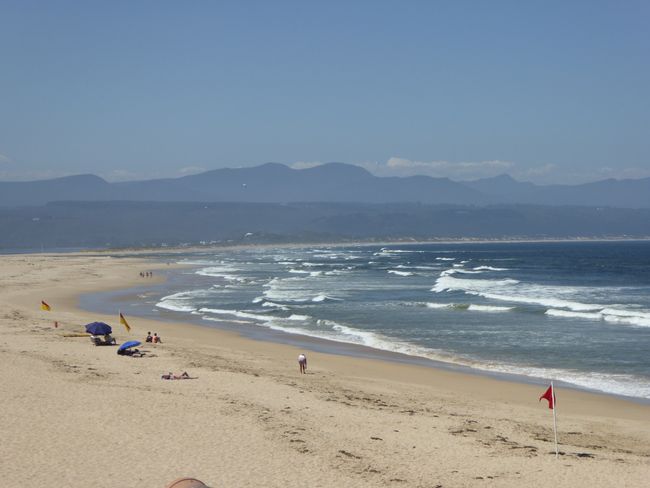
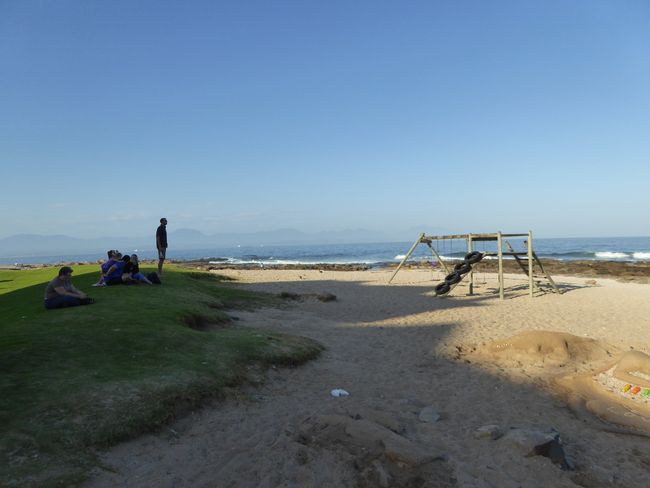
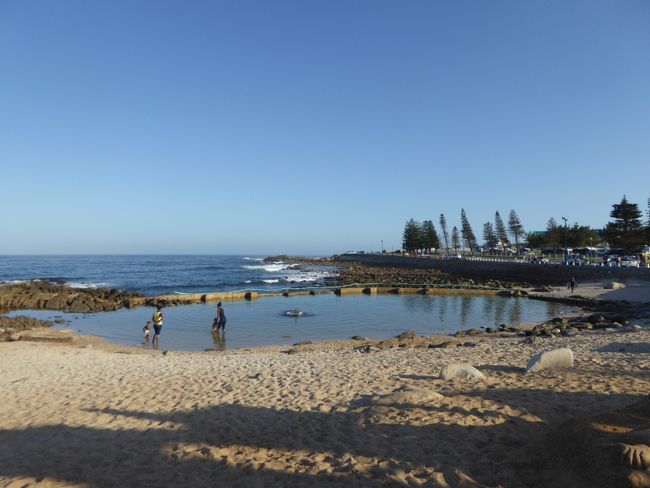
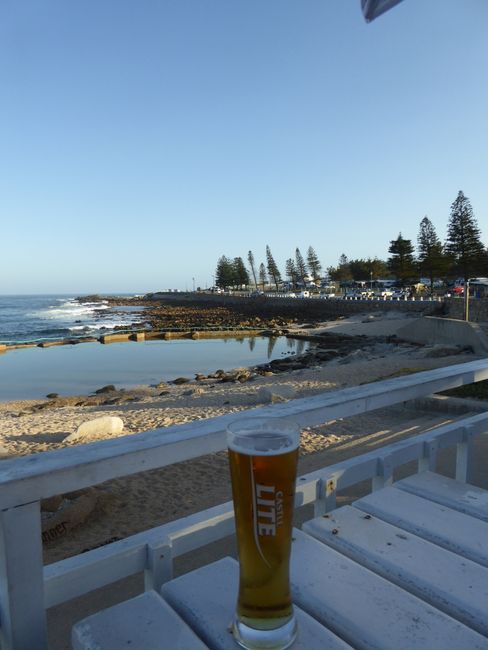
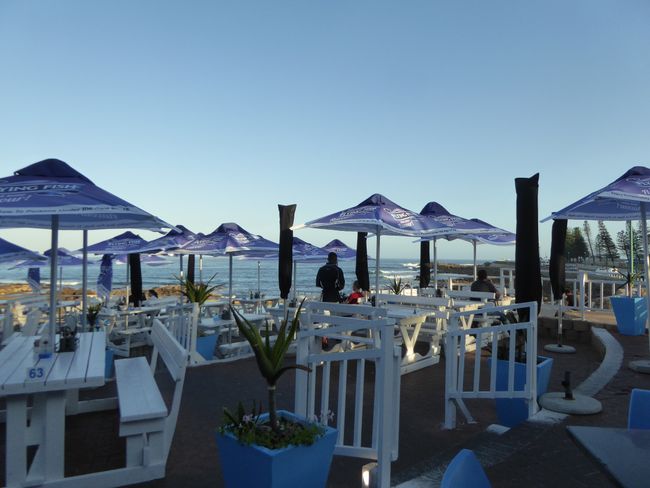
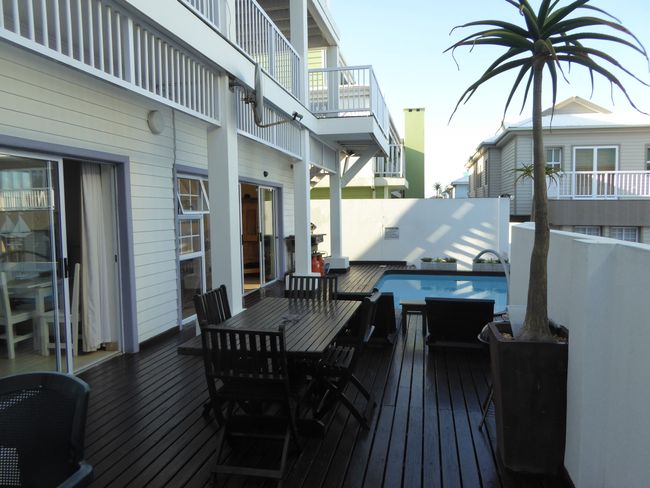
Alabapin si iwe iroyin
Monday 18.01.2016
At 5 o'clock the maid comes again with the tray and our second night is over. In weak moments one thinks: Should I stay in bed, I'm sooo tired?! But no, why am I here and even if I see the lion for the fourth time now - it will be worth it. So we sit at 5.30h - now with the Swabian couple - in the jeep and soon see three rhinos in the distance.
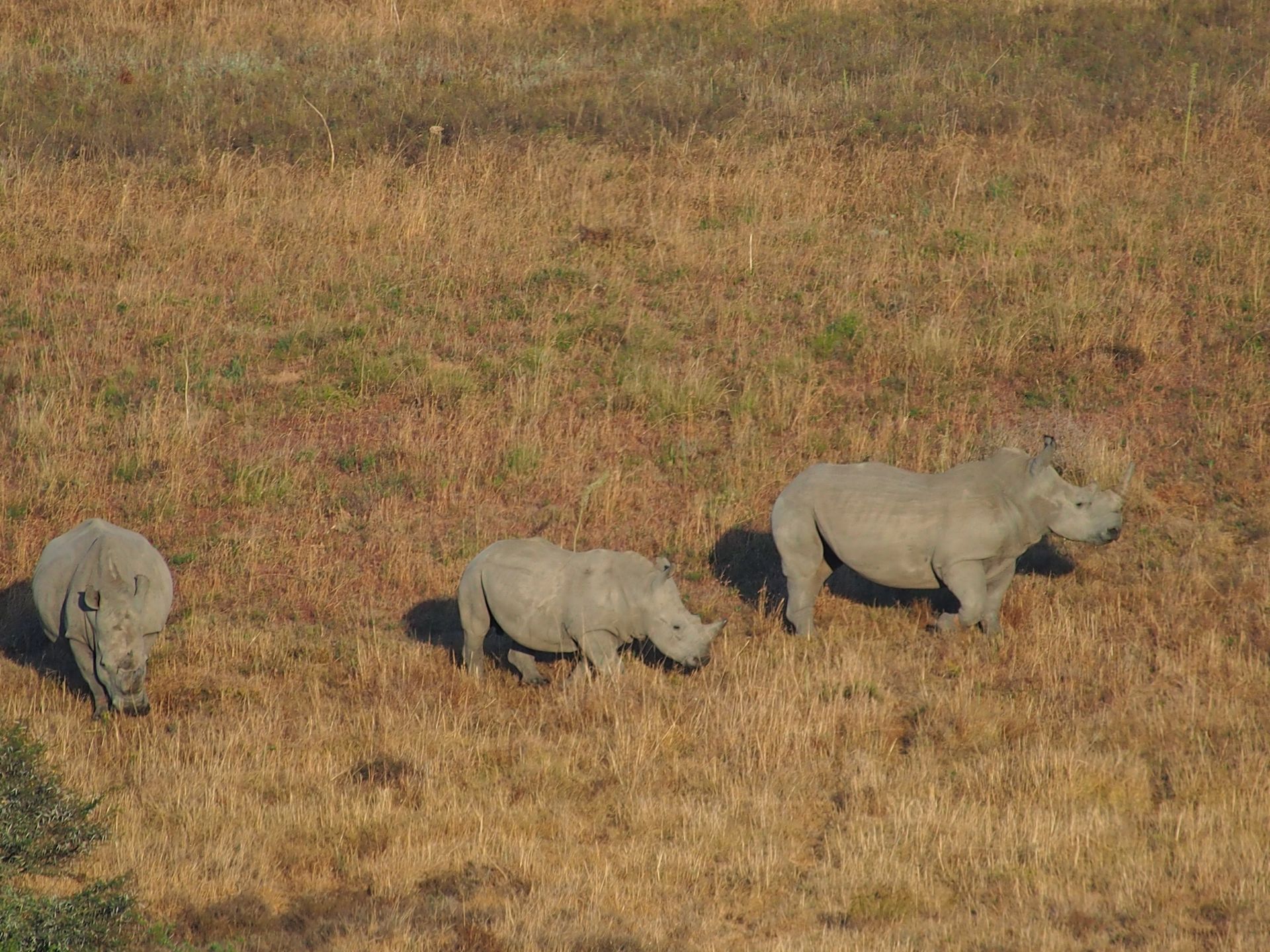
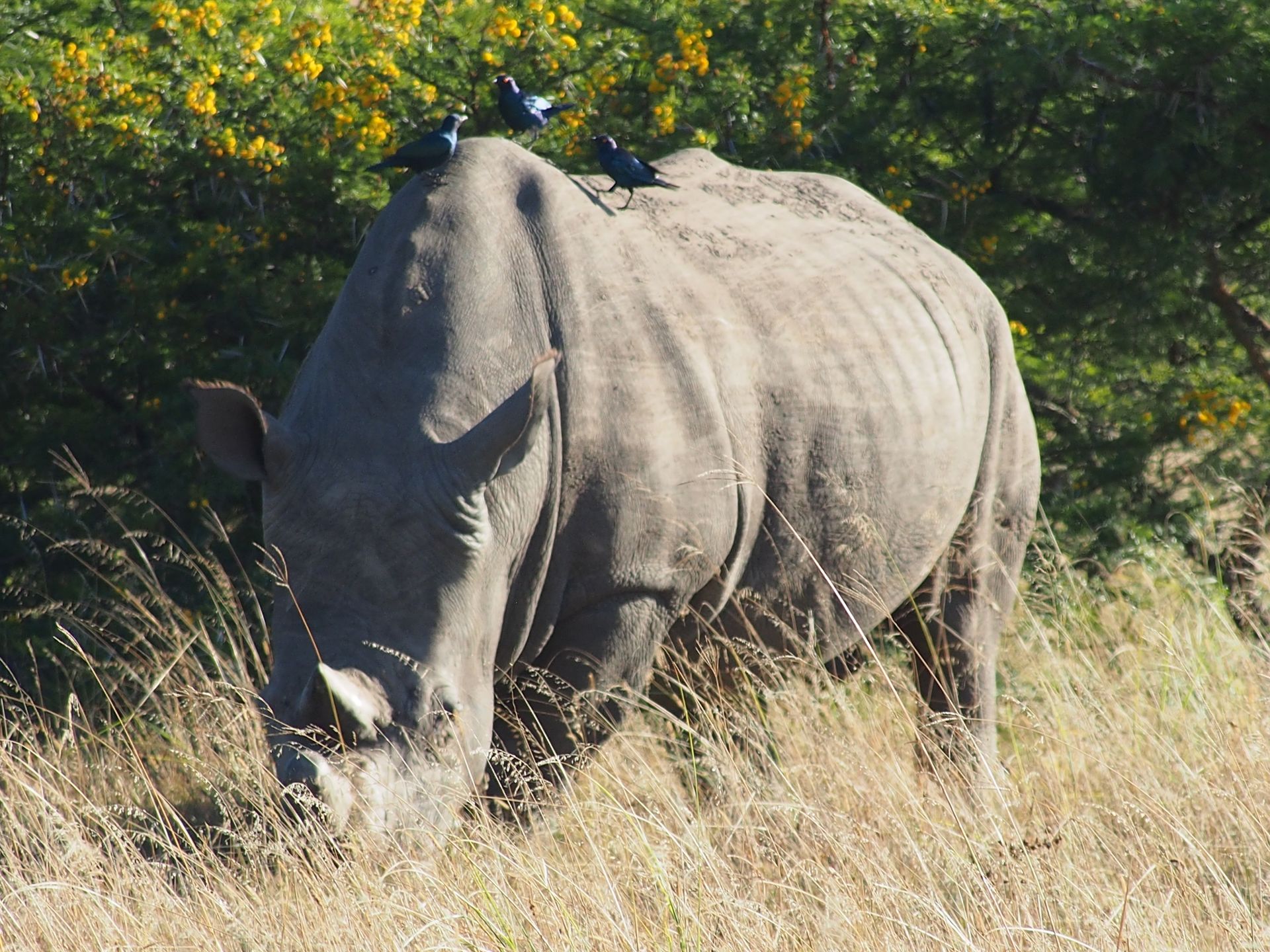
As always with the birds on the back (glossy sparrows) on the way
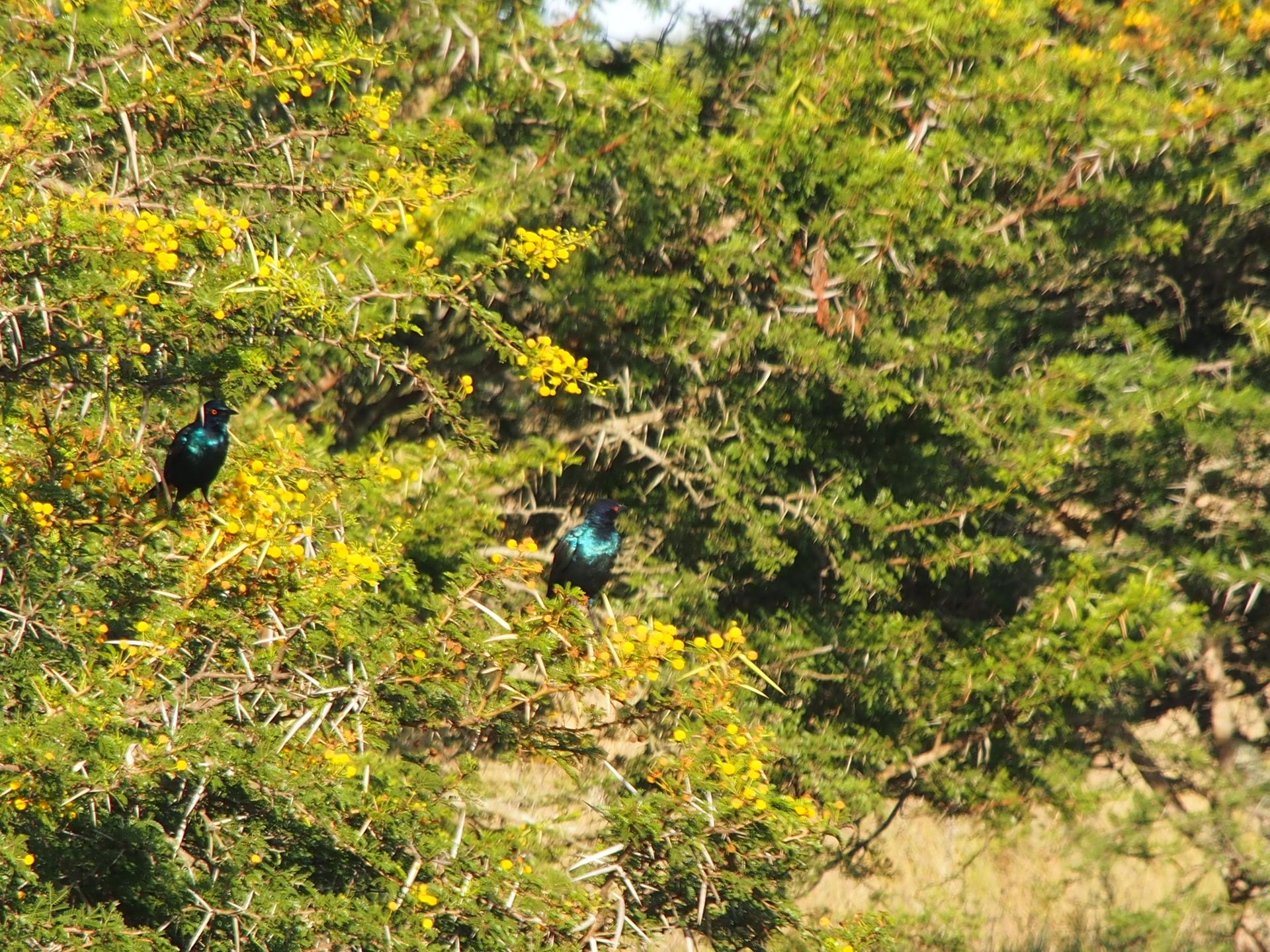
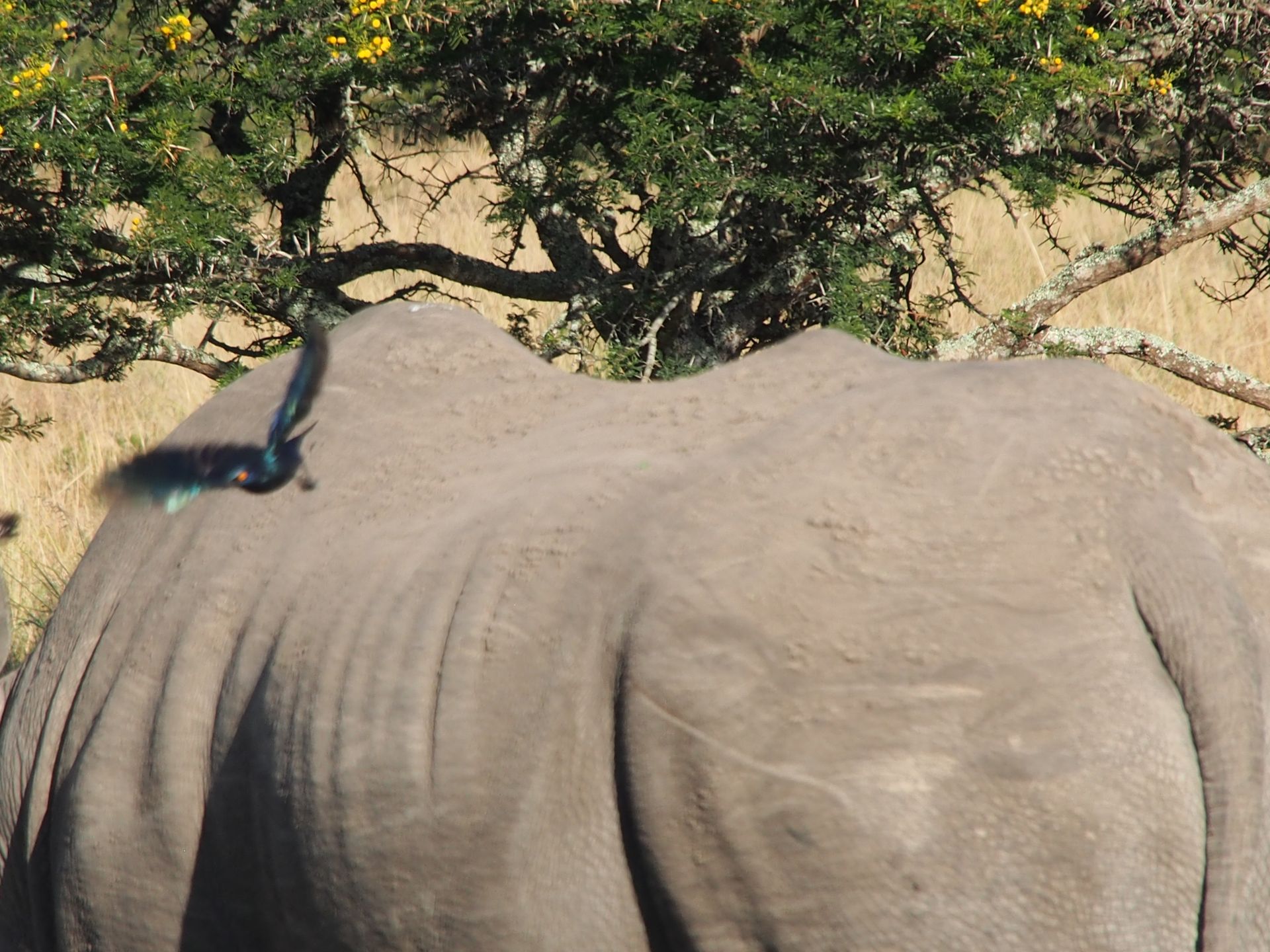
We stop and one of the rhinos trots leisurely across the road in front of us.

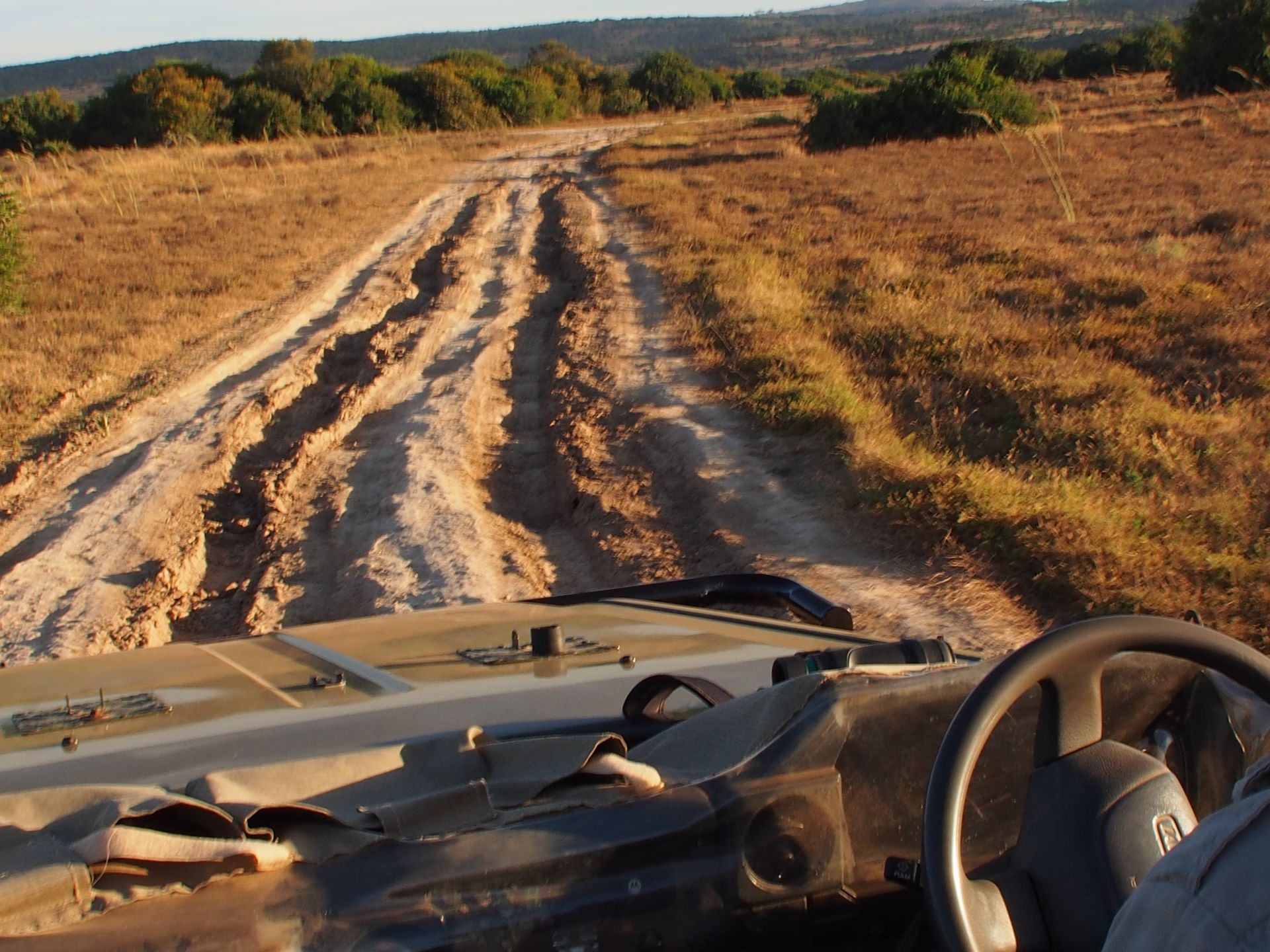
Typical paths in the reserve
Then we drive to the north side of the area and now see a herd of buffalo. These precious animals are deliberately kept here for breeding. In the southern part of Amakhala, where we have been so far, live the lions that like to hunt buffalo. The price of a buffalo in Africa is several million rand - so whoever breeds them (for other parks or zoos) makes good money.


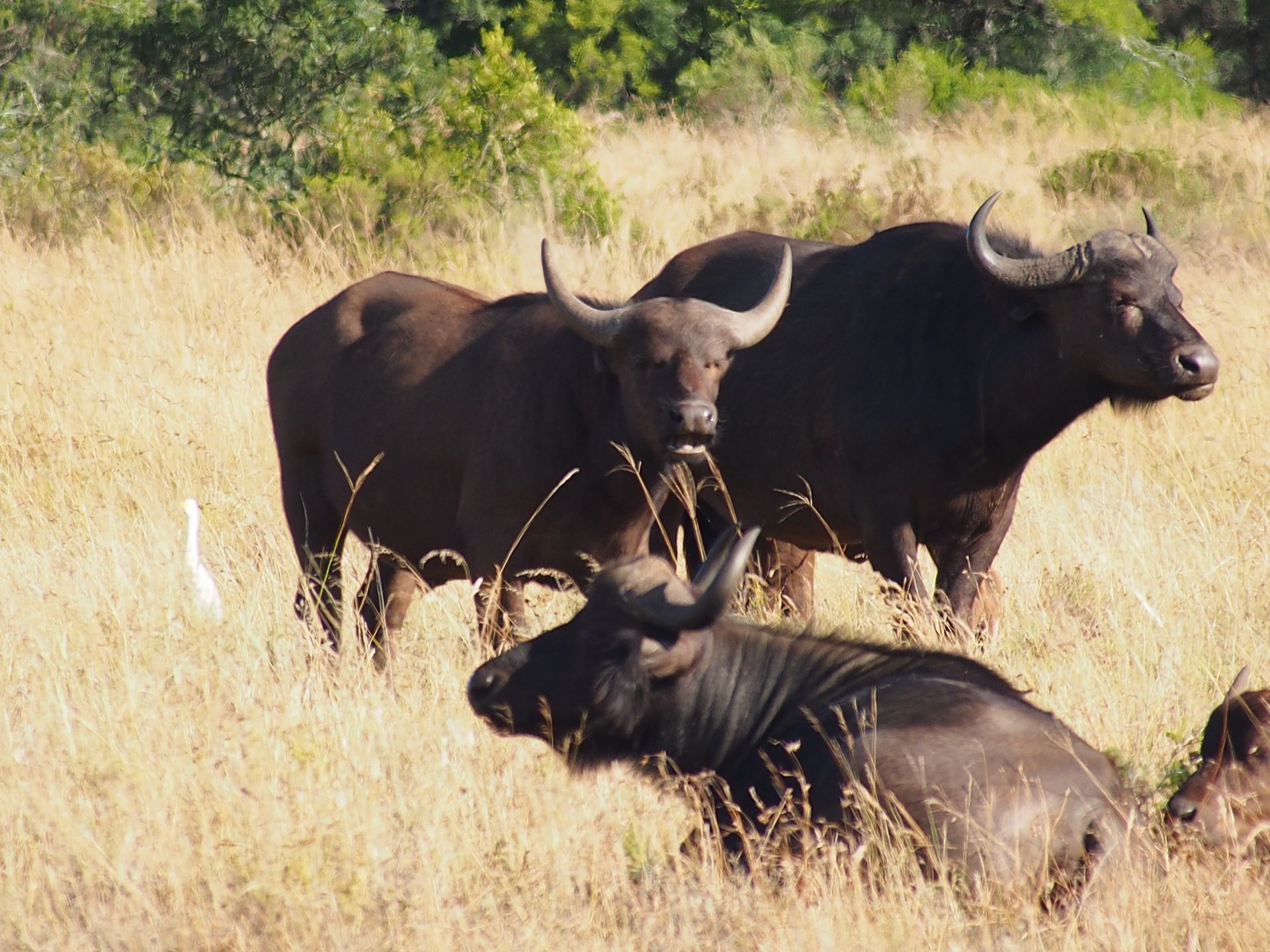
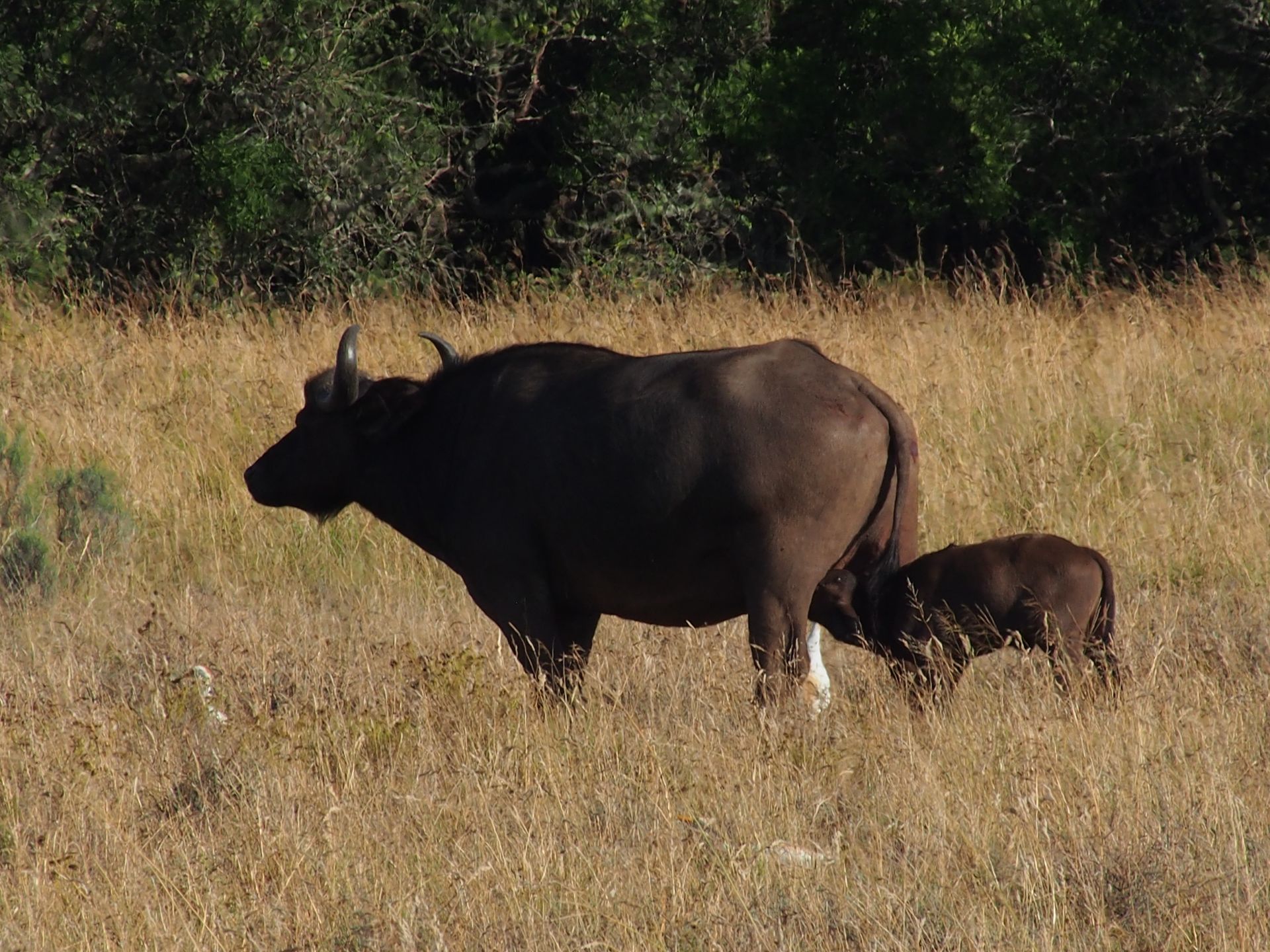
On the way back we come across a very sad elephant without tusks. How he lost them, whether they were cut off - nobody in the park knows. Until four weeks ago he still had them. According to Brad, the elephant must be in enormous pain because the wound is felt like an open tooth.

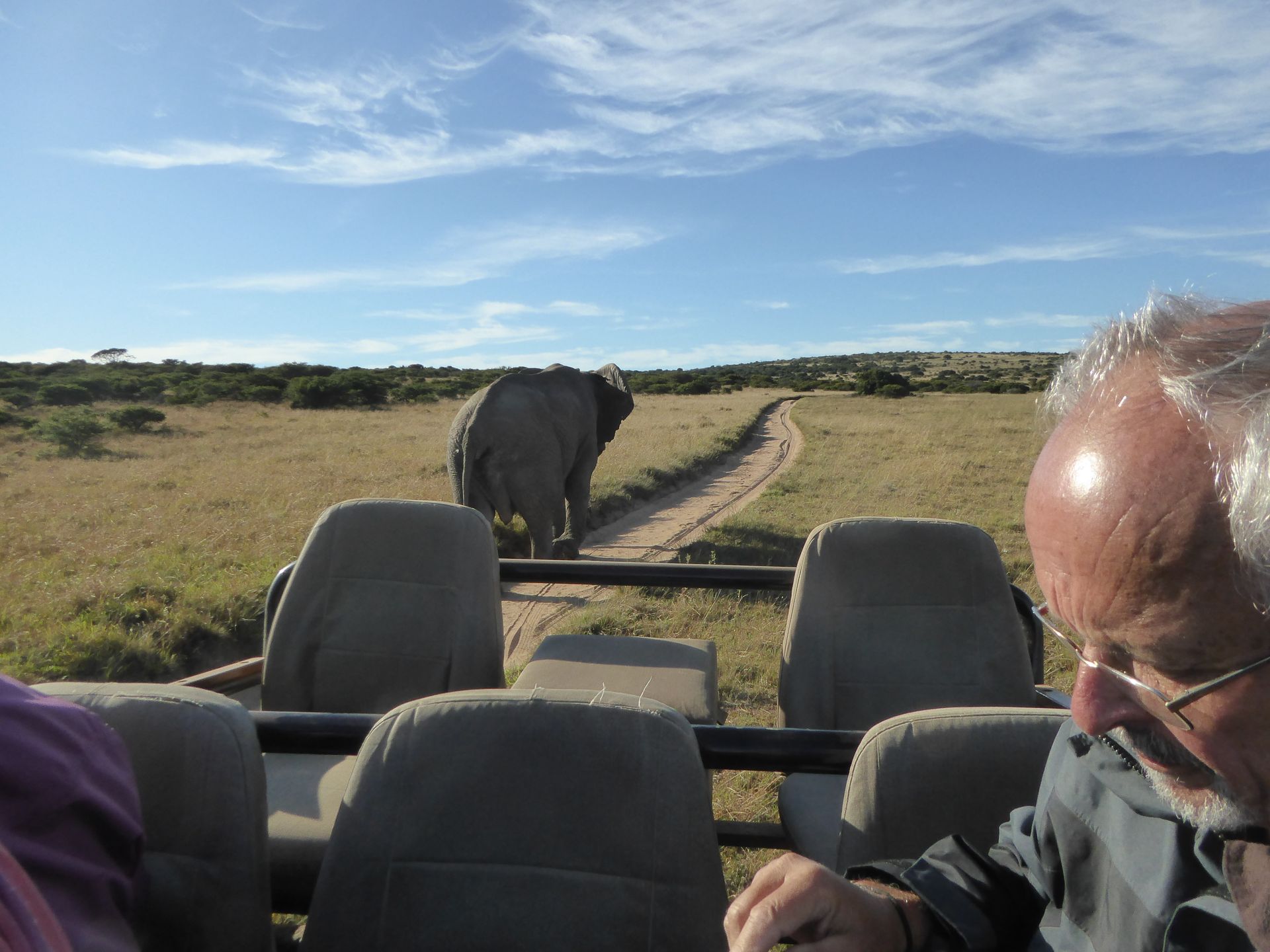


An elephant needs its tusks not only for fighting but also for searching for food, to push aside branches, etc. This elephant is likely to meet a near end and according to Brad's statements, it will probably have to be shot to prevent further suffering. There are apparently no comparable experiences that an elephant has ever lost both tusks directly at the head. The tusks grow out of the skull bone and therefore cannot fall out like human teeth. The elephant throws sand at itself, which it continuously throws over its head with its trunk - presumably to cool the pain.
Elephants get new teeth about six or seven times in their lives. When the last ones have fallen out, elephants starve. Only the tusks do not grow back. It is a sad sight.

Elephants and lions are allowed to be hunted when they are old and it is not possible for them to continue living. In Amakhala, all lions are equipped with collars (except the young ones). The rhinos have footbands with GPS and are monitored 24 hours a day. The horn of a rhino is worth more on the black market than gold or cocaine. Poachers like to climb over the fences of the reserves on full moon nights and shoot the rhinos because of their horns. The GPS monitoring can therefore only help to a limited extent. The monitoring, for example, records unexpectedly fast movements of the animals, which indicates that they are being hunted. But if that is then 40km away - how can you reach the animals before the rifle bullets?
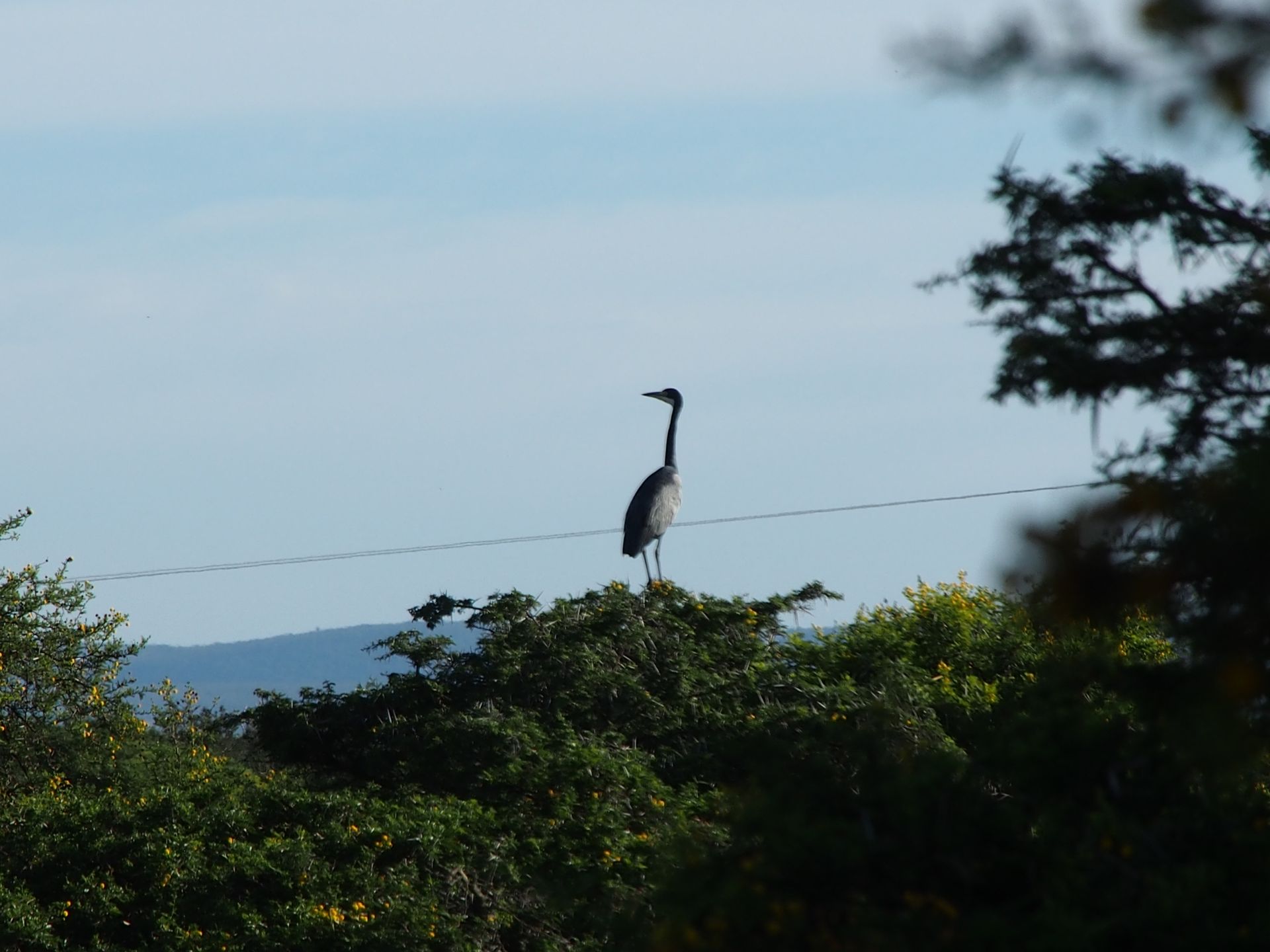

Our last drive takes us far through Amakhala and back to the lodge. Unfortunately, we don't see any lions or cheetahs now, but not much else either. What a great day we had yesterday!
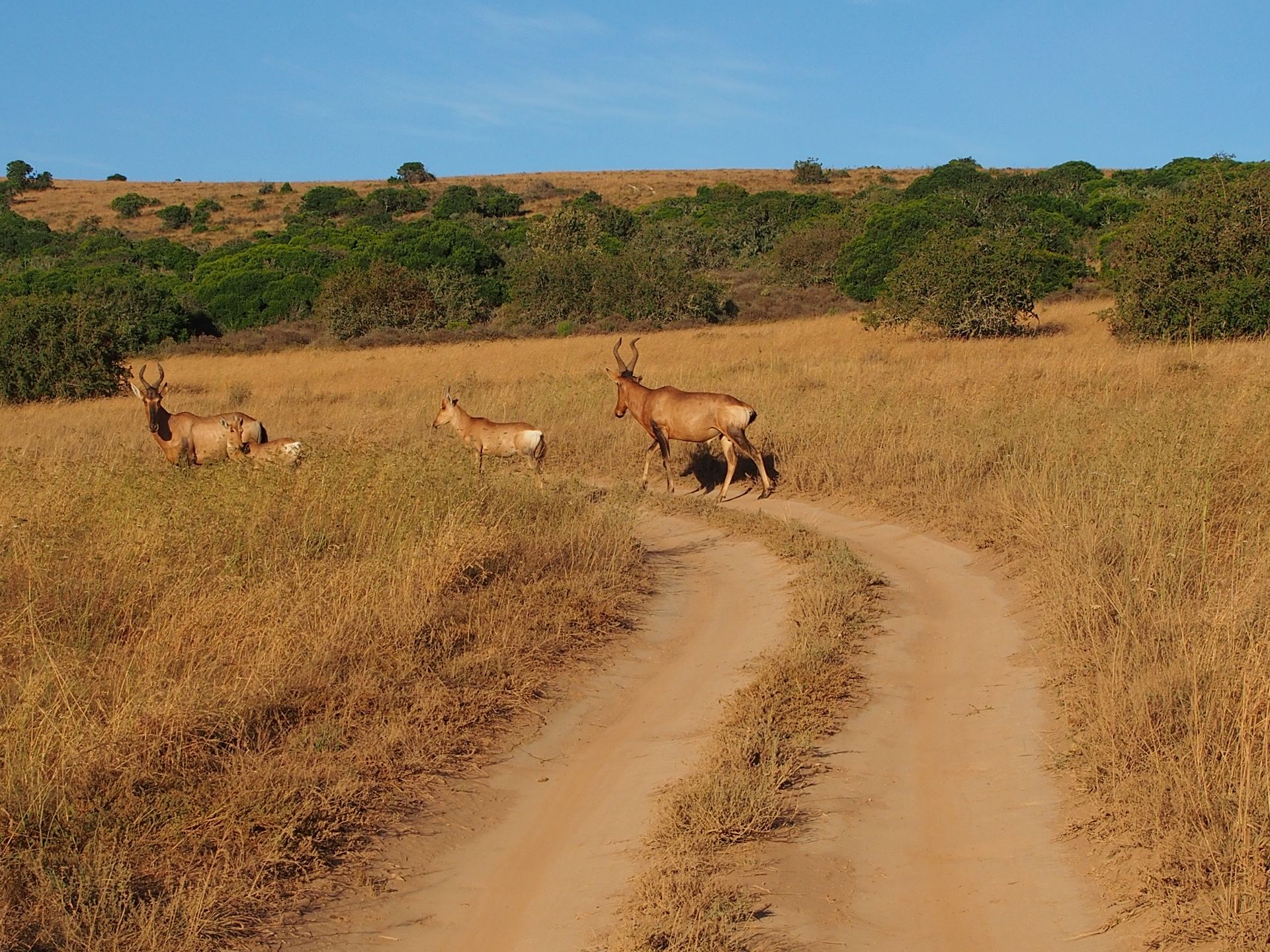
The rangers of the entire Amakhala reserve are in permanent radio contact with each other. So everyone learns about sightings of interesting animals and can drive there with their guests. At the same time, it is ensured that only a certain number of jeeps are near the animals and people drive on to give others the opportunity to see the animals.
A small group of springboks appears to us. It is interesting that many animals have white spots or bellies. If the white spots are on the belly, they serve cooling purposes, white hindquarters are markings ("follow me"), just like the raised tails of warthogs.
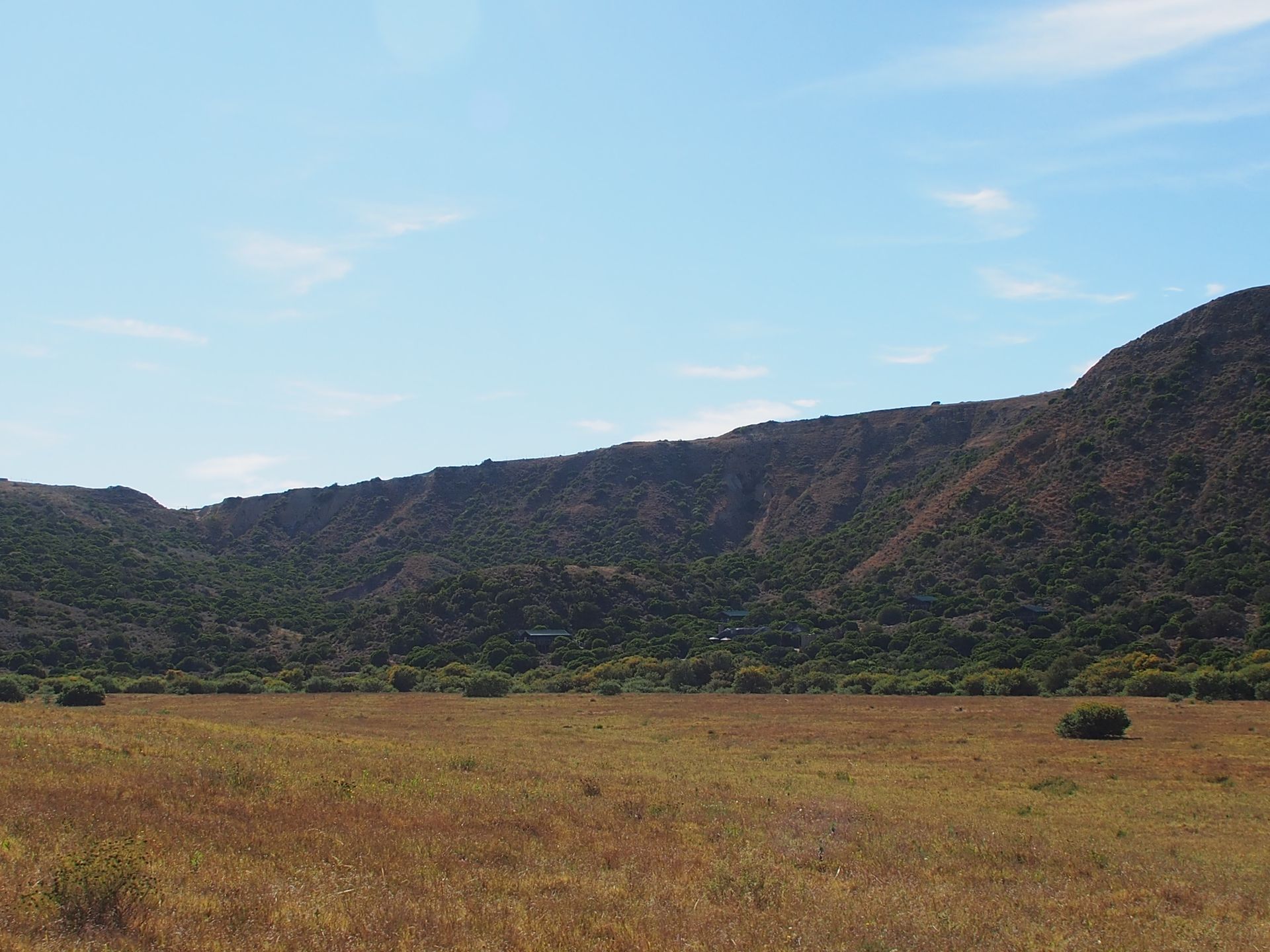
For breakfast we are back at the lodge. A last open-air shower and then quickly pack our things, a last chat with Alison and Ian and then it's 10.30am and Brad is ready again. We climb into our jeep for the last time, received a freshly baked cookie in the shape of a rhino lovingly wrapped, and then we drive off. A last look at wildebeest, red hartebeest and of course warthogs and then we are already at our car. It is a bit like being thrown back into civilization from a completely different world. Cars roar on the road and the tranquility and solitude is over. Our tents didn't even have keys to lock up and now we're going back to real (?) life.
We still have quite a distance to drive today. 460km to Mossel Bay. Most of the time we drive on the N2, which is excellent to drive on. Often at 120km/h, but unfortunately with many pedestrians on the shoulder, which can be really dangerous. We make good progress and drive down to the sea in Plettenberg Bay, sitting in a restaurant above the wide bay with the huge beach and overlooking the Indian Ocean.

Plettenberg Bay
A red flag means no swimming - only about 50m of beach is guarded, but only 2-3 people dare to go into the high waves. Even in shallow depths, there are apparently brutal undercurrents here that can pull your legs away and are life-threatening. So "Plett" has a ridiculously long beach, but there's not much to do with it for the most part. We give our usual 5 rand to our "west" - the park guards, who are marked with conspicuous reflective vests - and also the biltong, which we have been carrying around since Cape Town, as well as the dried fruits. After a few rounds of heating in the car, it probably won't taste very good anymore. But everyone raves about biltong, I tried it at the picnic on the first afternoon safari and it's not my thing. It already looks disgusting.
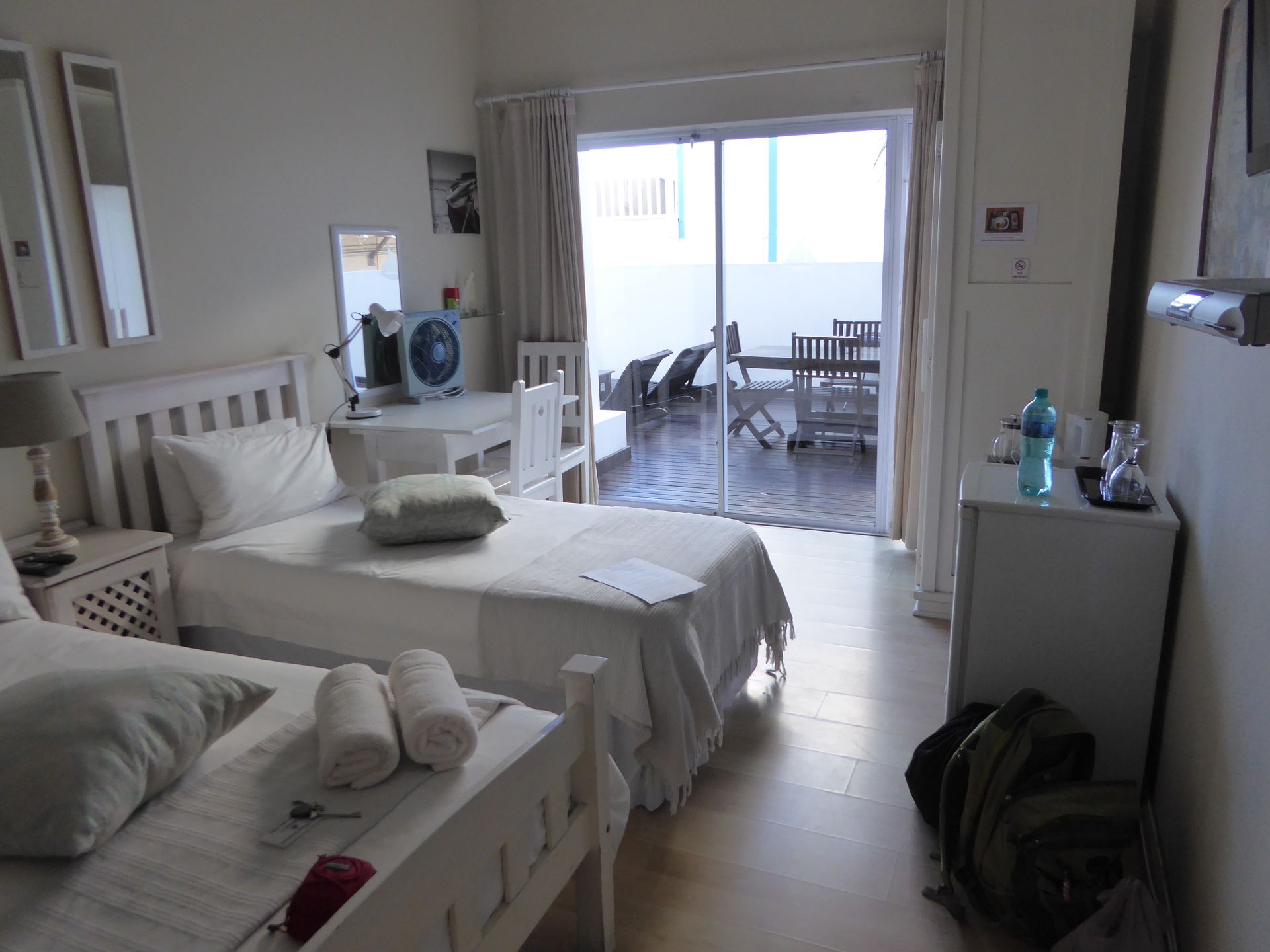
After about 6.5 hours of leaving Amakhala, we reach our hotel in Mossel Bay. The owner talks my ear off and gives me several pages of copies about the origins of humanity that come from Mossel Bay. Apparently his hobby. The Khoisan are among the oldest humans in the world. However, I am not interested right now, we move into our beautiful rooms for a good 30 euros including breakfast per room.
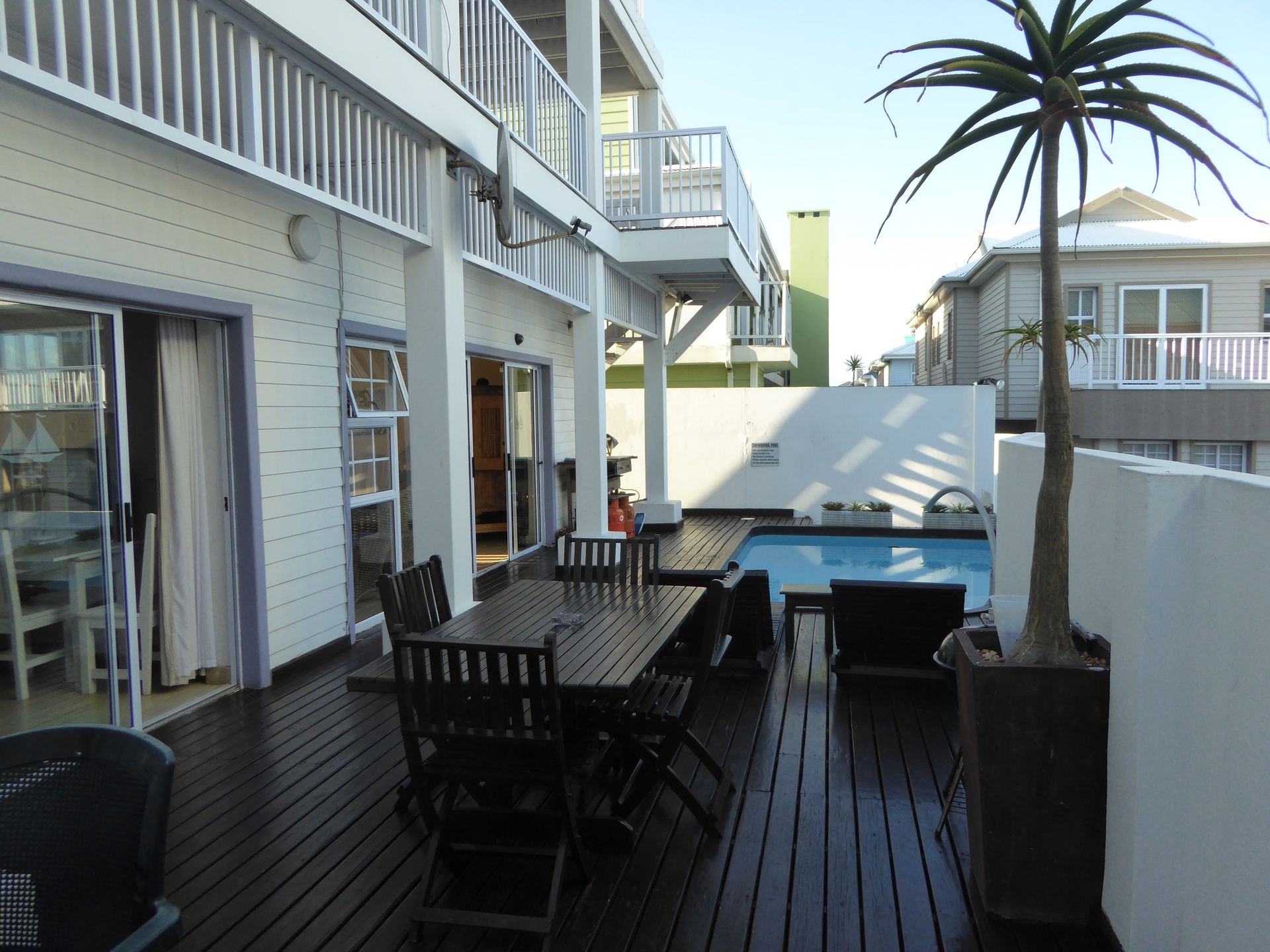
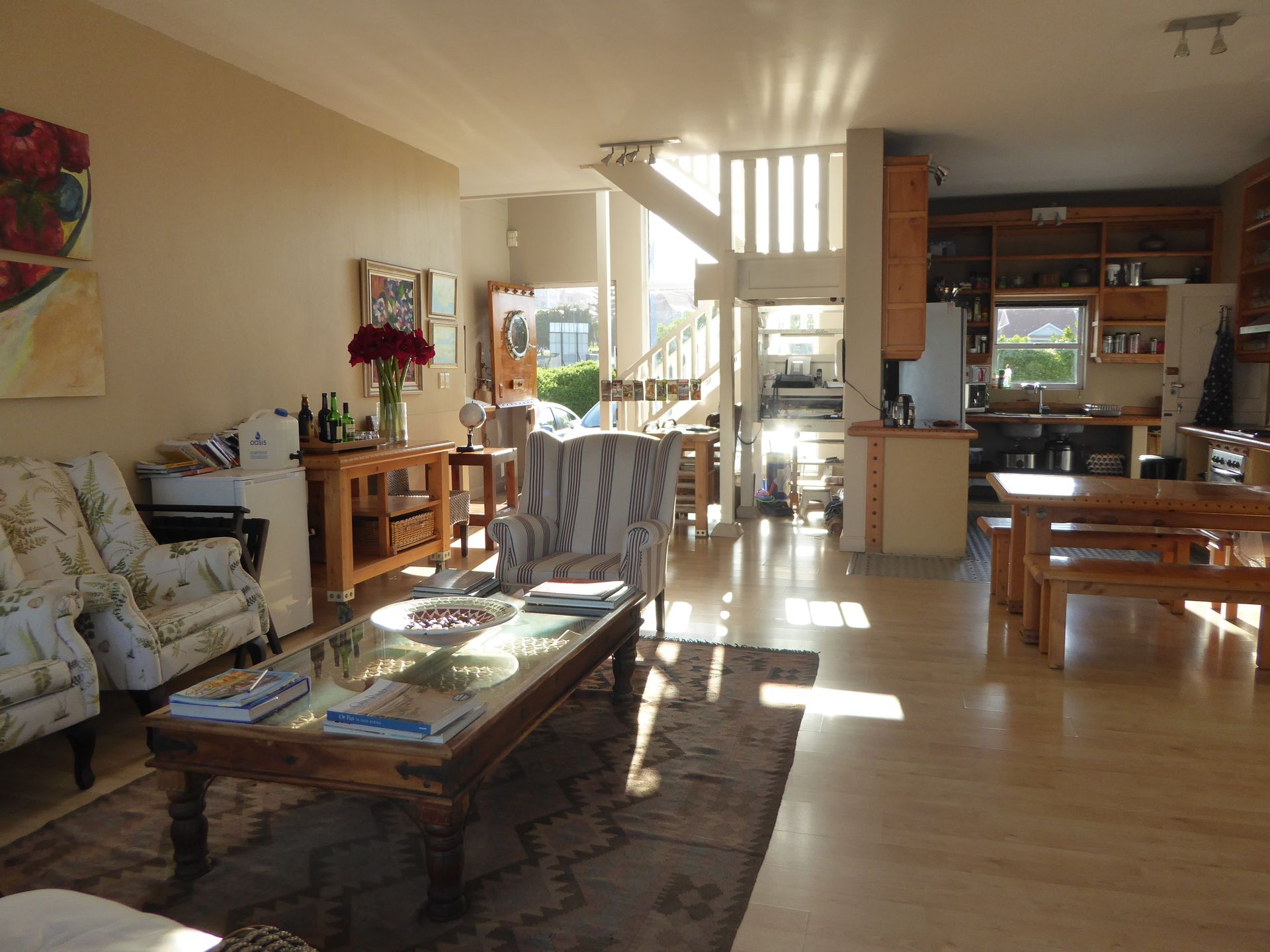
There is a bay with rocks around the corner, in front of it a few surfers in the wind. We settle down in the restaurant there, but move twice because it's too cold in the wind.


Pizza is served and by half past seven we are pretty cold in the hotel. Writing emails (unfortunately I have to do a lot there...), backing up pictures, great bed - good sleep.
Alabapin si iwe iroyin
Idahun
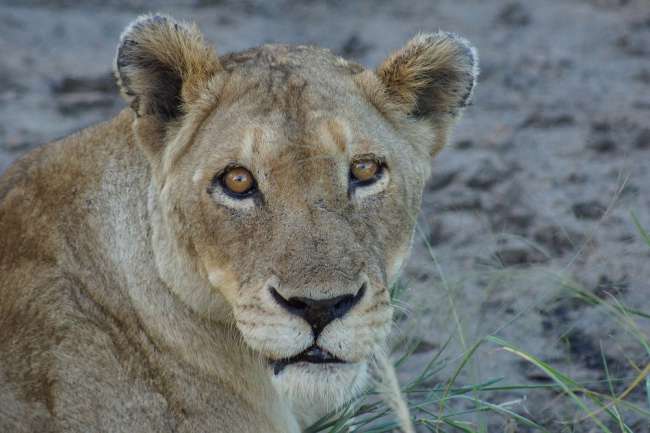
Awọn ijabọ irin-ajo Gusu Afrika
